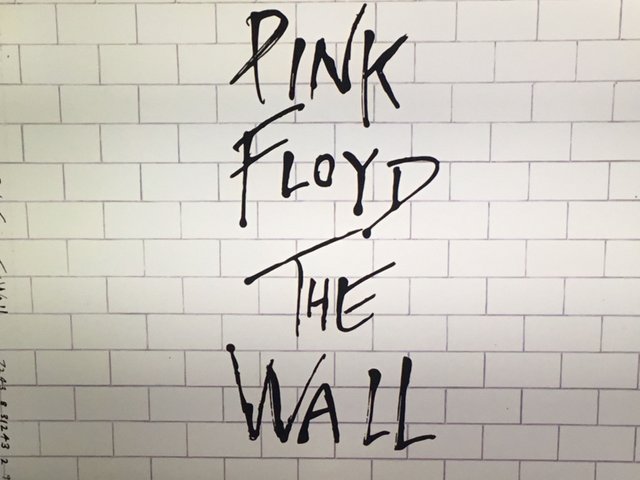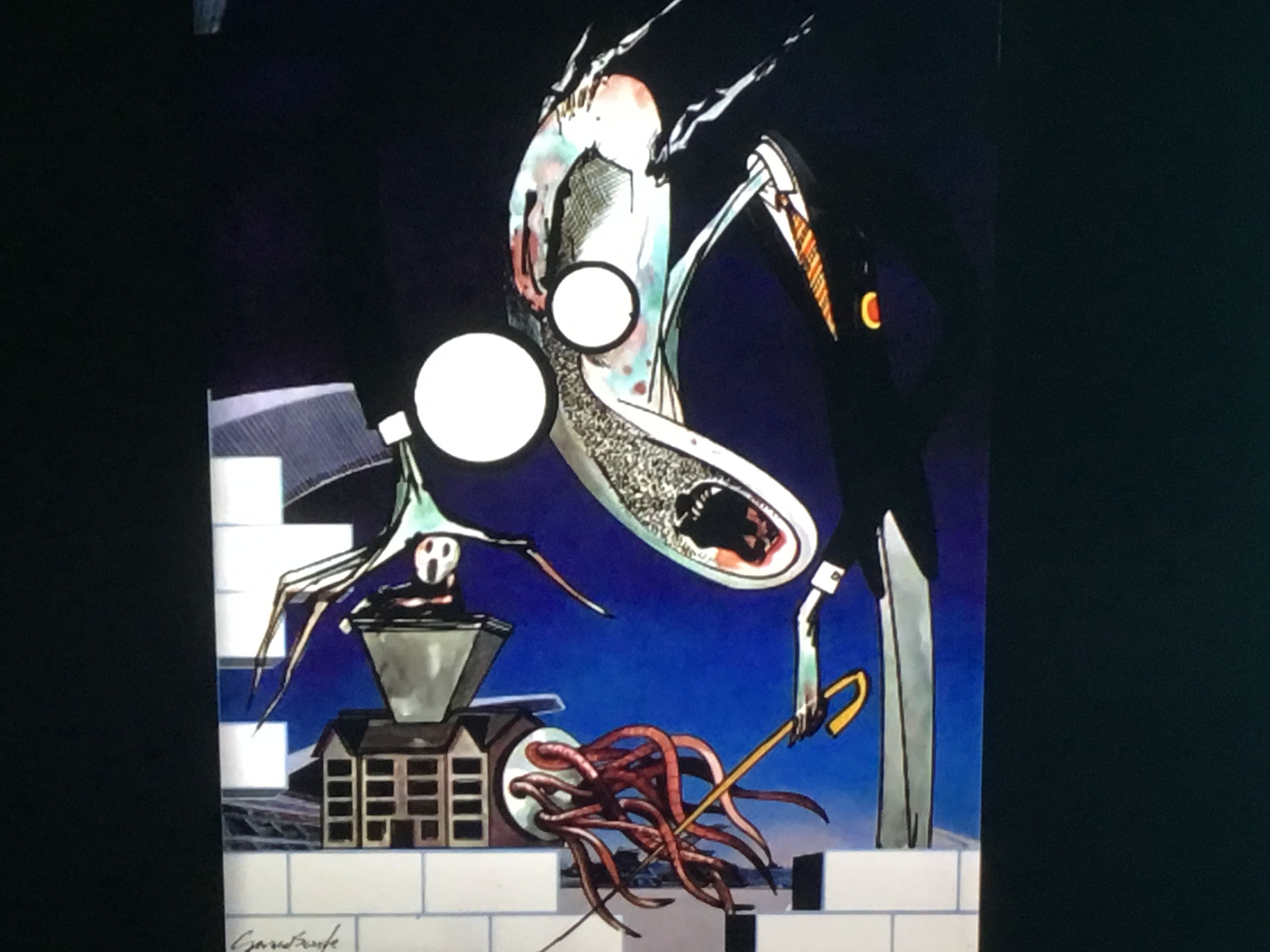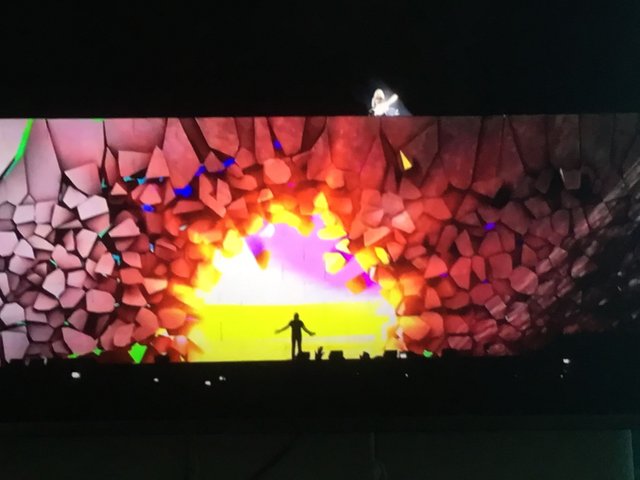“The Wall” Explained
“THE WALL” EXPLAINED.

‘The Wall’ was an album by Pink Floyd that came out in 1979. Why would any album require an ‘explanation’? Well, this album is not just a collection of songs but is instead built around a concept. It has something of a narrative, and that is what I want to talk about.
Firstly, let’s look briefly at its origins. ‘The Wall’ was inspired by events that occurred around 1976. By then, Pink Floyd had become one of the world’s biggest bands, thanks to the incredible success of their album Dark Side of the Moon. With such huge success came ever larger live concerts, but the size of those shows had a negative effect on Bassist and songwriter, Roger Waters. He began to feel isolated from his fans. Also, around this time punk was taking over and prog rock groups like Pink Floyd were seen as dinosaurs. Crowds in stadiums were not much like the fans who used to attend Floyd gigs in places like the UFO club, back in the 1960s. To Waters, the new breed of stadium concert goer seemed uninterested in paying much attention to what he had to say through his music. Such thoughts led Waters to imagine putting up a screen between the musicians and the audience, to highlight this separation. Originally, the screen was intended merely as a ‘screw you’ to the audience, but over time, it developed into a wall which, metaphorically speaking, symbolises isolation and alienation and which would literally get built before the audience and take on a more active role by transforming into hotels and other scenes for the concert/stage show that Waters developed.
At the start of the album ‘Pink Floyd’ is putting on a live show. I put Pink Floyd in quotation marks because, in the context of the story ‘The Wall’ is telling it does not refer to the actual band but to a semi-autobiographical character called ‘Pink Floyd’. ‘Pink’ is like a combination of all the members of the real band, but he is mostly based on the founder member Syd Barrett (who named the band after two blues musicians called Pink Anderson and Floyd Council, and who went insane after taking too much LSD) and Roger Waters, who lost his father in the war, an event that went on to shape much of the music he wrote (such as tracks like ‘Corporal Clegg’ from the second Floyd album and ‘Us and Them’ from Dark Side with lyrics like ‘forward he cried/ from the rear/ and the front ranks died’).
Something is not quite right with the concert. ‘Is this not what you expected to see?’, asks ‘Pink’ in a mocking voice. In the actual Wall show, the opening number is not played by the actual members of Pink Floyd but other musicians wearing masks of the band-members faces. We are challenged to ‘claw our way through this disguise’, and the opening song ends Stuka bombers raining death and destruction on the audience and the sound of a baby crying, which leads into the album’s next track.
The baby’s cry tells us that we have now gone back in time so that we may learn about what events turned ‘Pink’ into that diabolical character, ranting at his audience. Songs like ‘Mother’, ‘Another Brick In The Wall parts One and Two’ and ‘The Happiest Days Of Our Lives’, are based on memories of the character ‘Pink’, and those memories are the ‘bricks’ in the wall he has built up around his feelings to protect his vulnerability. The first brick- the earliest memory- is of his father’s death (‘Daddy’s flown across the ocean/ leaving just a memory...Daddy, what else did you leave for me?’). We also learn that ‘Pink’ had an overprotective mother (‘Mother will always find out where you’ve been’) and that he went to a dehumanising school with wicked teachers who ‘poured their derision on anything we did/ exposing any weakness, however carefully hidden by the kids’. Lastly, we learn that his wife is cheating on him (the song ‘One Of My Tunes’ opens with a phone call in which ‘Pink’, calls his wife, only to have another man answer it and then hang up on him). These memories combine with the pressures of being a rock star on tour, and by the time the first disc of this double album is over, ‘Pink’ is metaphorically walled in (and in the live show, Pink Floyd are now literally playing behind a wall that has been built up between them and the audience, with the very last brick put in place as the last song of disc one, ‘Goodbye Cruel World’ ends with ‘there’s nothing you can say/ to make me change my mind/ goodbye’).

The second disc tells us more about ‘Pink’s state of mind. He longs to reach out for human contact (‘don’t tell me there’s no hope at all/ together we stand divided we fall’) but he has long since driven away everybody apart from groupies and managers. As an isolated human being, ‘Pink’ becomes susceptible to ‘the worms’, or negative thoughts that eat away at your sanity. He is near to a complete nervous breakdown by the time the second disc is halfway complete, and at this point his manager gives him an injection that will ‘help you through the show’. Dosed up with goodness-knows what drugs, ‘Pink’ is ‘Comfortably Numb’ and, for a short while, he is the old Pink, dazzling the audience with his musicianship (at this point in the concert, lead guitarist David Gilmour ascends to the top of the wall and plays what many believe to be the best guitar solo in rock-music history).
But the good times don't last. The audience (or is it just ‘Pink’s’ imagination?) go from chanting ‘Pink Floyd! Pink Floyd!’, to ‘Hammer!’ Hammer!’. ‘The Worms’ win the battle inside ‘Pink’s’ mind, and he transforms into his evil alter-ego, ‘Hammer’, a fascist who stirs up xenophobic hatred amongst the audience and turns the concert into a kind of ‘Rock Nuremberg’, inciting crowds to spill out into the streets and bring about ‘the final solution to strengthen the strain’. ‘Pink’ aka ‘Hammer’ becomes increasingly manic, to the point where you can’t really make out what his distorted megaphone-amplified voice is ranting about.

At the very moment that the audience’s fervour is stoked to its peak, ‘Pink’ shouts/sings ‘stop! I wanna go home/ take off this uniform and leave the show’. He asks himself if it was he who is guilty for how his life turned out (‘I’m waiting in this cell because I have to know/ have I been guilty all this time?’). The conflict within his mind is represented as a trial, in which his teacher, wife and mother come forward to testify against him (‘the bleeding hearts and artists let him get away with murder’ and ‘have you broken any homes up lately?). After having been found guilty by his own consciousness, he is sentenced to his ‘deepest fear’, which is to be exposed to all the world as a vulnerable human being (‘Tear down the wall!’). After the sounds of explosions and crumbling masonry subside (the actual wall in the concert is physically demolished before the audience’s eyes at this point) the album and concert conclude with a folkish melody about the dangers of isolating ourselves from friends and family (‘the ones who really love you/ walk up and down outside the wall’).
BTW, the very last thing you hear at the end of disc two is somebody (Waters, I think) saying ‘somebody’s supposed’. This is actually the end of a sentence spoken at the very start of disc one, ‘to come in here’. So the whole sentence is ‘somebody’s supposed to come in here’. It sounds like some kind of musical direction that Waters is giving to the other band members, rather than anything to do with either the character ‘Pink’ or the ‘Wall’ narrative. Why is this in there, and why is the beginning of the sentence cut out and saved for the very end?
I don’t know:)
Thanks to Pink Floyd for the images.
I love the narrative in the album
Very beautiful music post this post to you for thank you very much, and this post a lot like and like post vote and comments and post share, I like this post a total of all see and this post to everyone can vote
Fantastic write-up on their best album (no not Dark Side of the Moon), Pink Floyd took on what the Beatles started... thanks so much!
one of the best songs!!!
Deep meaning!
I was thinking about making a post with all the new remixes of it :) now I see you wrote duh a lovely post-of course resteemed! Thanks man!!!! Great one hugs
It was not just a song! It was a “feeling”!!!
I still remember those days growing up and into a whole different vibe, without any digital distractions. The music seemed enough.
I wish that this generation could feel what we felt when we heard Pink Floyd and others of course for the first time. Yours @mammasitta
friend extie excellent story and great image
Pink Floyd is one of the best singers. I discovered him lately. My friend told me about his song "High Hopes". When I heard it the first time I felt that it is very special. I loved the lyric and the beats. It is just special and cant explain why, but I can hear it many time in one day and feel so happy.
Beautiful design and really wonderful well done choice
You are truly an artist
A very interesting article! :D
My favorite Pink Floyd song is Money:
Thanks for the kind replies, everyone. It means a lot:)